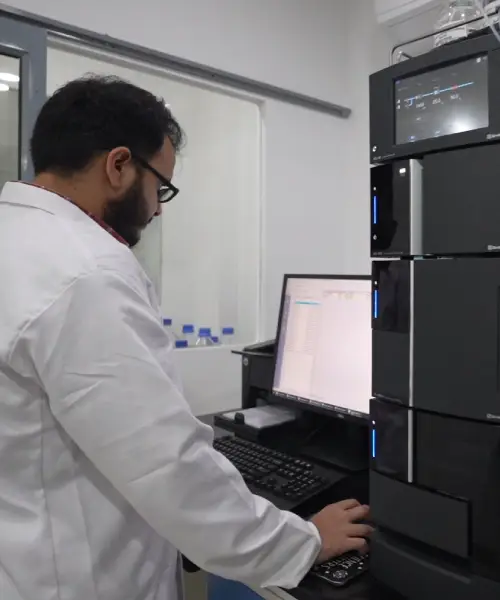
Drug Formulation
In the high-stakes world of pharmaceuticals, precision, safety, and reliability are non-negotiable. From discovery through to product approval, maintaining quality across every stage is paramount. At the core of this commitment lies analytical drug testing—a scientific process that ensures medicines are safe, effective, and consistent.
As regulatory scrutiny increases globally, robust pharmaceutical testing has become more critical than ever. This article explores how analytical examination supports drug development, safeguards public health, and accelerates time-to-market for life-saving treatments.
What is Analytical Drug Testing?
Analytical drug testing refers to a comprehensive set of laboratory techniques used to identify, quantify, and characterize pharmaceutical substances. These analyses ensure that products meet predefined quality attributes related to purity, potency, stability, and bioavailability.
Techniques include:
- High-Performance Liquid Chromatography (HPLC)
- Mass Spectrometry (MS)
- Gas Chromatography (GC)
- Infrared Spectroscopy (IR)
- Nuclear Magnetic Resonance (NMR)
These tools are pivotal in every phase of development—from raw material assessment to final batch release. Rigorous analytical examination guarantees that each compound behaves as expected, aligns with safety norms, and retains its efficacy over time.
Key Benefits of Analytical Testing in Drug Development
Quality Assurance
Analytical testing underpins quality by verifying the identity, strength, and composition of pharmaceutical substances. It ensures consistency in batch production and detects impurities or degradation products that could affect patient safety.
Regulatory Compliance
Stringent regulations from agencies like the FDA, EMA, and PMDA mandate that drugs undergo extensive pharmaceutical testing. Validated methodologies must support each analytical procedure. The process of analytical method validation confirms that a test is suitable for its intended purpose—accurate, precise, reproducible, and specific.
Risk Mitigation
Failing to detect contaminants or inconsistencies can have serious consequences, from product recalls to patient harm. Analytical testing minimizes these risks by flagging issues early in development and before commercial distribution.
Consistency & Scalability
As drugs scale from lab to plant, consistent quality must be preserved. Analytical protocols support reproducibility, helping manufacturers avoid variability across batches—a key to successful commercialization.
Product Characterization
Beyond identifying components, analytical methods characterize the molecular structure, polymorphic forms, and physical properties of a drug. This aids in formulating stable and bioavailable dosage forms.
Speed to Market
With effective analytical drug testing, issues are resolved early, regulatory approvals proceed smoothly, and time-to-market shortens. This is especially vital for competitive therapeutic areas like oncology, CNS, and rare diseases.
Role of Pharmaceutical Analytical Laboratories
Dedicated pharmaceutical analytical laboratories play an indispensable role in this ecosystem. These labs are equipped with advanced instrumentation and staffed by expert chemists, pharmacologists, and regulatory specialists.
Their key functions include:
- Method development and validation
- Raw material testing
- Stability studies under ICH guidelines
- Impurity profiling
- Bioanalytical assays for pharmacokinetics
Modern labs also support formulation development and process optimization—offering integrated insights that accelerate innovation and reduce costs.Whether in-house or outsourced, analytical labs must comply with GLP and cGMP requirements, ensuring that data is audit-ready and meets global regulatory expectations.
How CDMO Solutions Leverage Analytical Testing
Today’s CDMO pharma company offers much more than manufacturing capacity—they provide scientific partnership. Comprehensive CDMO solutions include analytical testing as a core service, enabling seamless product development from concept to commercial launch.
CDMOs leverage analytical capabilities to:
- Rapidly develop and validate methods tailored to specific APIs
- Troubleshoot process inefficiencies with real-time data
- Generate regulatory submission packages
- Support tech transfer to commercial-scale facilities
Integrating analytical functions with synthesis and formulation saves time, reduces handoffs, and ensures better communication—driving faster development cycles with fewer delays.
Conclusion
Analytical drug testing is not just a regulatory checkbox—it is the foundation of safe, effective, and high-quality pharmaceuticals. From pre-clinical studies to post-marketing surveillance, rigorous analytical examination supports informed decision-making and ensures patient trust.
Whether performed by internal teams or specialized pharmaceutical analytical laboratories, these analyses guide critical formulation choices, process refinements, and final product approvals.






